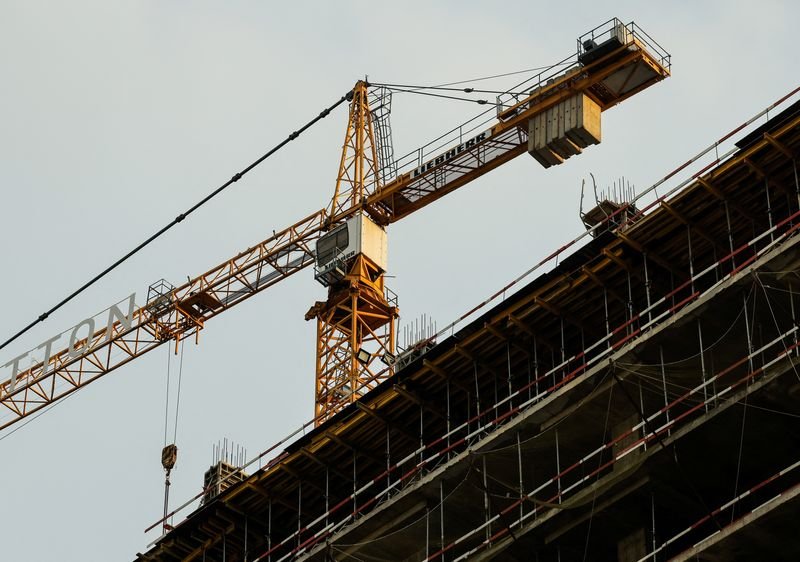Exclusive-Russian authorities see rising economic risks, internal reports show
Published by Global Banking & Finance Review®
Posted on February 13, 2025
4 min readLast updated: January 26, 2026

Published by Global Banking & Finance Review®
Posted on February 13, 2025
4 min readLast updated: January 26, 2026

Internal reports reveal rising economic risks for Russia, including lower oil prices and budget constraints, threatening growth prospects.
LONDON (Reuters) - Lower oil prices, budget constraints and a rise in bad corporate debt are among the top economic risks facing Russia, documents prepared for an internal government discussion show, with a possible jump in U.S. and OPEC oil output of notable concern.
President Vladimir Putin and top officials have in public regularly extolled the Russian economy's resilience in the face of international sanctions while characterising inflation, stubbornly high at 10%, as its biggest challenge.
But the reports reviewed by Reuters, which were prepared by the economy ministry and central bank for a February 4 session with Prime Minister Mikhail Mishustin, reveal broader concerns existed before Wednesday's announcement by U.S. President Donald Trump of talks with Putin to end the Ukraine war.
"A situation in which the slowdown of the economy up to a technical recession will occur much faster than the slowdown in inflation is becoming much more likely," the economy ministry report said.
That report warned that high interest rates - which analysts polled by Reuters expect to stay at 21% when the central bank meets on Friday - are curbing lending and investment, threatening Russia's growth prospects.
"The lack of investment now is a lack of GDP growth (lower growth rates) in two to three years," the report said.
Both the economy ministry and central bank flagged the danger of lower oil prices, which could cause problems for the federal budget.
The central bank's report highlighted the "significant risk" of lower oil prices should a U.S. production drive flood the market and further noted that OPEC countries' free capacity is close to a record high and equal to the volume of Russian crude exports.
"Budget constraints in the following 5-10 years may be tougher than it currently seems," the central bank said in its assessment of the potential impact of lower oil prices.
The economy ministry and central bank did not respond to requests for comment.
HEIGHTENED COSTS
The economy ministry said in its report that it was braced for widespread cost increases for companies, a concern publicly raised by Deputy Prime Minister Alexander Novak in parliament on Wednesday.
The cumulative increase in companies' costs - on labour, taxes, tariffs and interest expenses - in 2025 from 2024 is estimated at 14.8 trillion roubles ($163.9 billion), or about 45% of the volume of private investment in fixed assets last year, the report said.
With unfavourable external conditions and declining domestic demand making it harder for firms to pass on costs to consumers, that will further squeeze profits, it noted.
That all weighs on companies' financial stability and adds to the risk of bad debts building up, the report went on. It warned that growth in supply could be insufficient even to meet slowing demand - especially in the agriculture sector, where price rises are likely in 2025.
OIL PRICE RISKS FOR BUDGET
Fuelled by soaring government spending, military production and exports of oil, gas and minerals, Russia's economy grew strongly after a small contraction in 2022, withstanding the impact of Western sanctions over the invasion of Ukraine better than Moscow or the West initially expected.
But in recent months widespread labour shortages, rouble weakness and interest rates at their highest in more than two decades have strained Russia's growth prospects.
In January, Reuters reported Putin had privately grown increasingly concerned about distortions in Russia's wartime economy, citing five sources with knowledge of the situation.
Washington is acutely aware of oil prices as a pressure point for Moscow, with U.S. Defense Secretary Pete Hegseth on Wednesday predicting lower energy prices would help bring Russia to the table for negotiations over the future of Ukraine.
Energy income accounts for about a third of Russia's budget revenues and higher oil prices help Moscow manage its fiscal deficit, which ballooned to 1.7 trillion roubles in January alone, as Moscow frontloads 2025 spending.
Russia's rainy day National Wealth Fund (NWF) has become the main source of financing Russia's now persistent budget deficit. The fund's liquid assets have dropped by about two thirds to just $37.5 billion from $112.7 billion before the war.
"The NWF is NOT designed to cover falling incomes over a long period of time," the central bank said in its report.
($1 = 90.3000 roubles)
(Reporting by Reuters; editing by Mark John and Christina Fincher)
The main economic risks include lower oil prices, budget constraints, and a rise in bad corporate debt.
High interest rates are curbing lending and investment, which threatens Russia's growth and could lead to a technical recession.
The National Wealth Fund has become the main source of financing for Russia's persistent budget deficit, but it is not designed to cover falling incomes over a long period.
Washington sees oil prices as a pressure point for Moscow, with predictions that lower energy prices could help bring Russia to the negotiating table.
The cumulative increase in companies' costs is estimated at 14.8 trillion roubles, which is about 45% of the volume of the economy.
Explore more articles in the Headlines category


